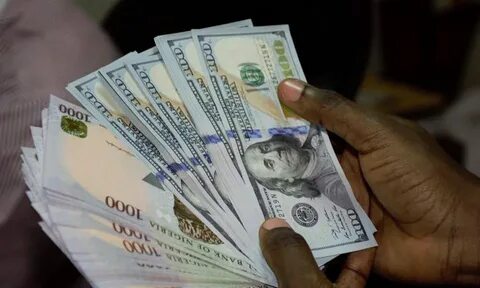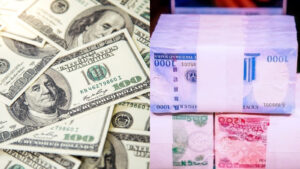Introduction: Why This Question Matters More Than Ever
If you’ve ever saved diligently only to watch your money shrink in value, you know the frustration of choosing wrong currencies. For many Nigerians, inflation devours savings. For Canadians, interest rates affect CAD’s global power. For Americans, the dollar’s strength feels secure—until market shocks remind us nothing is guaranteed. Add crypto to the mix, and the question gets even more complicated.
So, which currency is best to save in—Naira, USD, CAD, or crypto? The answer depends on where you live, your financial goals, and how much risk you can stomach. This post unpacks the pros and cons of each, highlights the pain points most savers face, and offers practical strategies to protect your wealth.
Why Choosing the Right Currency Is a Survival Skill
Money is not just paper or digital numbers—it’s stored trust. When that trust erodes, your savings collapse.
Common Pain Points People Face
- Currency Devaluation: Local currencies like Naira can lose half their value in a year.
- Hidden Inflation: Prices rise while salaries remain stagnant.
- Global Uncertainty: Even USD and CAD are vulnerable to oil shocks, wars, or recessions.
- Fear of Digital Scams: With crypto, one wrong wallet click can erase everything.
Why It Matters to You
- For Nigerians, it’s about survival—protecting your savings from inflation and devaluation.
- For Canadians, it’s about making CAD stretch in a USD-dominated global market.
- For Americans, it’s about maintaining global dominance while inflation chips away silently.
- For crypto holders, it’s about balancing freedom with safety.
In short: where you save matters as much as how much you save.
The Case of the Naira: Fighting a Losing Battle?
The Nigerian Naira has faced one of the steepest declines among global currencies.
Pain Points
- Hyper-inflation: Inflation often crosses double digits, meaning ₦100,000 last year buys less this year.
- FX Shortage: Access to USD or CAD is restricted, forcing people into black markets.
- Poor Interest Returns: Bank savings accounts rarely outpace inflation.
Real-Life Example
In 2023, Nigeria unified its exchange rate system. Overnight, the Naira lost nearly 40% of its value. Savers who held only Naira saw instant losses. Those who diversified into USD avoided the blow.
Solution
- Keep only what you need for short-term spending in Naira.
- Move long-term savings into stronger currencies or assets.
- Explore dollar-denominated accounts or stablecoins if FX is restricted.
The USD: Still King of Currencies
The US Dollar remains the world’s reserve currency, making it the most trusted choice.
Benefits
- Accepted in nearly every country.
- Acts as a hedge during global crises.
- Stable compared to emerging currencies.
Pain Points
- Costly to buy in weaker economies.
- Political disputes over debt and inflation occasionally shake confidence.
Case Study
During the 2008 financial crisis, investors ran to the USD despite America being the epicenter of the crisis. Why? Trust. The world still believed the dollar would bounce back—and it did.
Solution
- Nigerians should allocate at least 40–50% of savings in USD.
- Canadians and Americans can use USD as a backbone savings currency.
- Consider US Treasury bonds or USD savings accounts for low-risk interest gains.
CAD: The Quietly Reliable Option
The Canadian Dollar may not dominate like USD, but it’s a strong regional player.
Benefits
- Canada’s economy is resource-rich and politically stable.
- CAD maintains strength due to ties with the US economy.
- Safe for residents, as Canada’s banking system is globally ranked among the most secure.
Pain Points
- Less globally recognized than USD.
- Volatile against USD when oil prices fall.
Real-Life Example
In 2015, oil prices crashed. The CAD weakened significantly against the USD because Canada relies heavily on oil exports. Savers who diversified with USD weathered the dip.
Solution
- Canadians: save primarily in CAD, but hedge with USD.
- Nigerians and Americans: consider CAD as a diversification currency, not your main savings.
- Use Canadian GICs (Guaranteed Investment Certificates) for secure, government-backed savings.
Crypto: High Risk, High Reward
Cryptocurrency is no longer fringe—it’s mainstream. Bitcoin, Ethereum, and stablecoins are now part of serious savings conversations.
Benefits
- High growth potential if held long-term.
- Borderless transactions—no need for banks.
- Stablecoins like USDT or USDC mimic USD’s stability.
Pain Points
- Extreme volatility: Bitcoin once dropped 50% in a few months.
- Security risks from scams, hacks, and lost passwords.
- Regulatory bans or restrictions in certain countries.
Real-Life Example
In 2021, El Salvador adopted Bitcoin as legal tender. Early adopters saw gains, but those who bought during the peak lost over 60% when Bitcoin crashed.
Solution
- Use crypto as a speculative hedge, not your main savings.
- Limit to 5–15% of your portfolio.
- Store in hardware wallets, not just exchanges.
Head-to-Head Comparison
| Currency | Strengths | Weaknesses | Best Use Case |
|---|---|---|---|
| Naira | Immediate liquidity, local use | High inflation, weak globally | Short-term expenses only |
| USD | Stable, global, strong hedge | Costly in weak economies | Long-term savings & investments |
| CAD | Stable, safe banks, resource economy | Less accepted globally | Diversification, Canadian residents |
| Crypto | Growth potential, borderless | Volatile, risky | Small, high-risk portion |
Building a Balanced Portfolio: Practical Roadmap
Instead of betting everything on one option, spread your savings:
- 20–30% in local currency for bills and emergencies.
- 40–50% in USD for stability and access.
- 10–20% in CAD if accessible or if you live in Canada.
- 5–15% in crypto for growth.
This ensures you’re prepared for inflation, devaluation, and global crises.
Pain Point: Inflation Eating Your Future
Imagine saving $1,000 only to discover in five years it buys half as much. That’s inflation.
Solution: Save in strong currencies (USD, CAD) and complement with low-risk investments like US Treasury bonds or Canadian government securities.
Pain Point: Barriers to Accessing Foreign Currency
In Nigeria, people queue for dollars only to be told “no supply.”
Solution:
- Use digital platforms like Wise or Payoneer.
- Explore stablecoins pegged to USD (stablecoin guide).
- Consider foreign bank accounts in Canada or the US if possible.
Pain Point: Fear of Losing Everything Overnight
Crypto investors especially know this fear. But even fiat savers suffer—Naira lost value overnight in 2023.
Solution: Diversify. No single currency should hold all your money. Spread your risk.
Practical Scenarios
Scenario 1: Nigerian Professional
- Keeps 25% in Naira for bills.
- Holds 50% in USD through a domiciliary account.
- Invests 10% in CAD GICs via Canadian relatives.
- Allocates 15% in Bitcoin & USDT.
Result: Protected against inflation, with exposure to global growth.
Scenario 2: Canadian Student
- Saves 60% in CAD for tuition and living.
- Keeps 20% in USD for travel and investments.
- Holds 10% in crypto for long-term risk.
- Keeps 10% in emergency CAD cash.
Result: Safe domestic savings with exposure to USD and growth potential.
Scenario 3: American Worker
- Saves 70% in USD in a high-yield savings account.
- Holds 15% in CAD to hedge.
- Puts 10% in crypto.
- Keeps 5% liquid cash.
Result: Balanced portfolio with USD dominance but not total reliance.
Long-Term Outlook: Which Currency Will Win?
- Naira: Likely to face further struggles unless Nigeria reforms its economy.
- USD: Still the world’s reserve, though debt concerns exist.
- CAD: Stable as long as Canada remains resource-rich and close to the US.
- Crypto: The wild card. Could either revolutionize money or crash under regulation.
Final Thoughts: Don’t Just Save—Strategize
The best currency to save in isn’t about loyalty; it’s about strategy. Naira is for spending, USD is for security, CAD adds diversification, and crypto is for calculated risk.
The real winner? A diverse portfolio that shields you from inflation, protects your family, and grows over time.
FAQs
1. Should I save everything in USD?
No. While USD is strong, diversification spreads risk and increases flexibility.
2. Is it safe to hold large savings in crypto?
Not as your only option. Keep crypto at 5–15% of your portfolio.
3. What’s the best option for Nigerians?
Hold small amounts in Naira, bulk in USD, and a little in crypto.
4. Can Canadians just save in CAD?
Yes, but add USD for international protection.
5. Which is the most future-proof currency?
USD and stablecoins like USDT remain the safest bets for the next decade.







